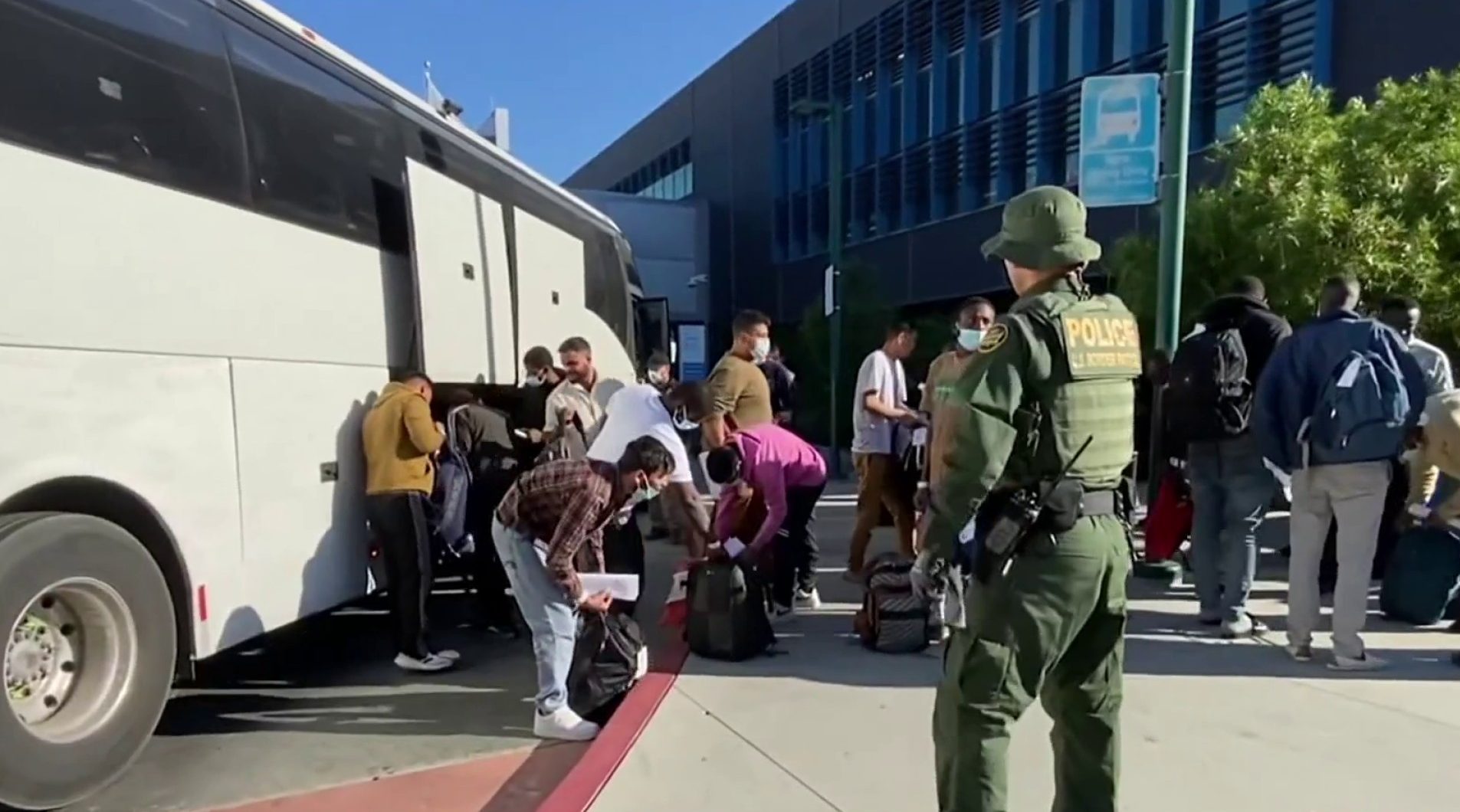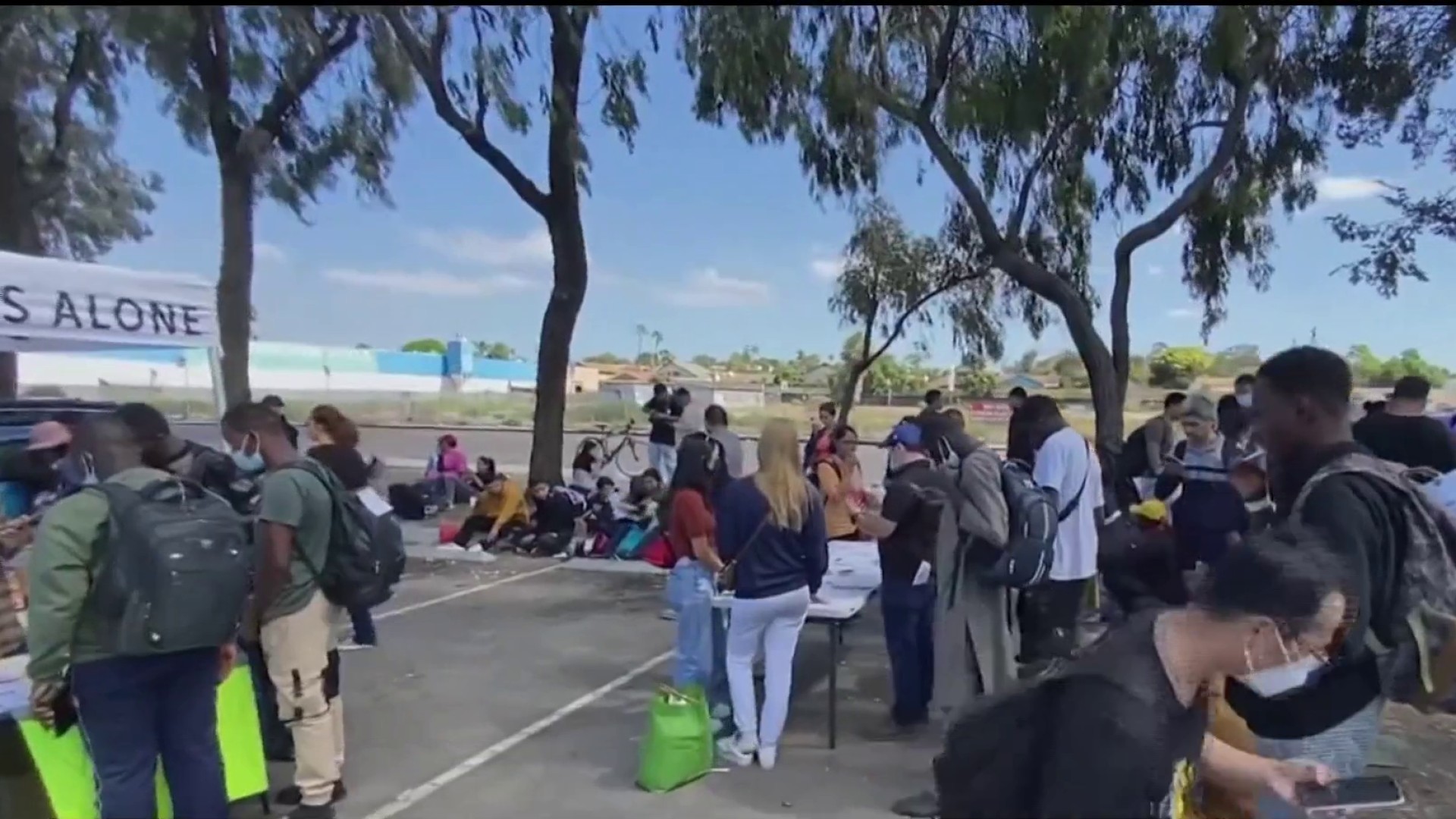More than 13,000 people seeking asylum have been released into San Diego County since Sept. 13, 2023, according to the county. Of those 13,000 an estimated 8,000 of them have received some sort of help from a San Ysidro-based organization called Casa Familiar.
“We were, you know, paying for security, paying for porta potties. Imagine the cleaning and the additional trash services,” Lisa Cuestas, the president and CEO of Casa Familiar, said. “When we opened up, I pulled 36 staff that had other responsibilities to help in this emergency. That’s what you do when it’s an emergency.”
Casa Familiar along with other local non-governmental organizations transformed the San Ysidro Civic Center, which usually holds community events, into a place for people seeking asylum to come for resources, to charge phones, sleep and get connected to transportation.
Covering the U.S.--Mexico Border
Get San Diego local news, weather forecasts, sports and lifestyle stories to your inbox. Sign up for NBC San Diego newsletters.
“We have emergency funds,” Cuestas said. “When emergencies happen, you go into that pocket and you start with a hope that a lifeline will come your way.”
But, she said, a lifeline has not yet come so they're needing to scale down their operation.
“There is zero federal dollars. There is no dollars, period, except philanthropy at this point,” she said.
Cuestas estimates that in less than two weeks Casa Familiar has spent more than $200,000. That's a number she expects to climb when they are able to tally everything up.
“We can’t work the 16-hour days. We can’t provide all the technology, laptops, phones, staff overtime, food without any end in sight,” Cuestas said.
She emphasized that there needs to be intervention from the government, from local officials to national representatives, not only to help fund non-governmental organizations in the short-term but to come up with a relief plan in the long-term.
“We’re doing [the government’s] job for them right now, so we can’t all at the same time do 16-hour days, spend money that we hope one day we’ll get reimbursed, make sure our team is OK, talk to all the elected officials and decision-makers, do the fundraising,” Cuestas said. “I mean, it’s asking a little too much.”
NBC 7 spoke with San Diego County Board of Supervisors Chairwoman Nora Vargas, who represents District 1 that includes the border region and San Ysidro. She said she agrees that there needs to be more resources given to asylum-seeker relief.
“First and foremost, I’m very grateful for [Cuestas] and them taking on this responsibility that truly is the responsibility of the federal government,” Vargas, who also mentioned Jewish Family Services and other local organizations, said. “We have reached out to the federal government and have said we need resources. We need to be able to support our NGOs so that the NGOs can do their jobs and support our communities as well.”
Vargas put her thoughts into a letter addressed to the Board of Supervisors as a whole on Friday. It reads, in part:
Today’s request is to dedicate $3.0 million in County resources to our local partners to perform essential services such as translation assistance, geographic information, transportation services, access to equipment and Wi-Fi to contact sponsor relatives, food, snacks, water, hygiene kits, restrooms and other services as needed to facilitate their onward movement beyond San Diego County. This fiscal commitment is necessary to keep the humanitarian crisis from deepening, and to secure the health and safety of our region while maintaining the human dignity of asylees fleeing oppressive regimes. The funding is expected to provide these services for up to 3 months while continuing a relentless pursuit for a long-term funding source from the federal government.
During her conversation with NBC 7, she added, “this is not a long term solution, and I want to make sure that that's very clear. This is a short term solution to address the increase in asylum seekers that we are seeing in this region. And to me it's extremely important that people are treated with dignity and respect and this humanitarian crisis needs to be addressed. These are undesignated funds that we are able to move.”
The board is expected to decide on this on Oct. 10. Some of Vargas' colleagues have already spoken out, including Supervisor Jim Desmond who represents District 5, which includes the northernmost portion of San Diego County.
“This potential allocation for non-U.S. citizens is County tax dollars – money that should be used to address pressing issues within our county,” Desmond wrote in a post on X. “Our community faces challenges such as homelessness, deteriorating roads, and mental health crises that demand immediate attention and resources. These issues should be the focus of county tax dollars as they directly impact the lives of San Diego County residents.”
Congressman Juan Vargas also sent a statement to NBC 7 about the effort to get federal funding to San Diego County. It reads:
I’m proud to represent a community that opens their arms to welcome migrants, many of which are fleeing extreme violence. I want to recognize the local nonprofits who consistently step up to meet the needs of those arriving. I continue to urge the Biden Administration to fund FEMA’s Shelter Services Program and prioritize funding for the border regions that are receiving asylum seekers.
El Cajon Mayor Bill Wells, who is running for Congress, agreed with Supervisor Desmond, saying San Diego taxpayers' money should be spent on local non-immigration issues.
"I absolutely believe that the people who pay taxes have the expectation it's going to go toward the people who live here. It's going to go to their kids and their hospitals and their schools," Wells told NBC 7. "All of this is a terrible humanitarian crisis that should not be happening. We should have control of our border."
The San Diego County Board of Supervisors will meet Tuesday, Oct. 10 at 9 a.m.




